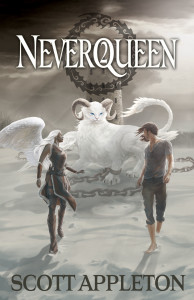The wizard wanted a male heir, but when he saw that the boy born to him was malformed he determined to kill him.
Finally Neverqueen2 is at your fingertips! Available now on Kindle and I cannot wait for you to get into this story:
Born into a life of cruelty, Valor could easily have fallen into his father’s darkness. Instead he set out to undo the wizard’s madness by covering those around him with the Creator’s compassion and light.
The prophets are at work in the shadows, bringing forward the Neverqueen as the next prophetess whose reign will bring hope to the people of Paradon, and to her own people by the Eiderveis River. Her mysterious interactions and judgements will settle a caution and a terror in the hearts of the sorcerers and others who ignore her warnings.
Tomorrow I will be reviewing the first Print proof of Neverqueen2. As long as it checks out well, it will be released immediately in Paperback! Enjoy! Follow this link to find it on Amazon.



Recent Comments